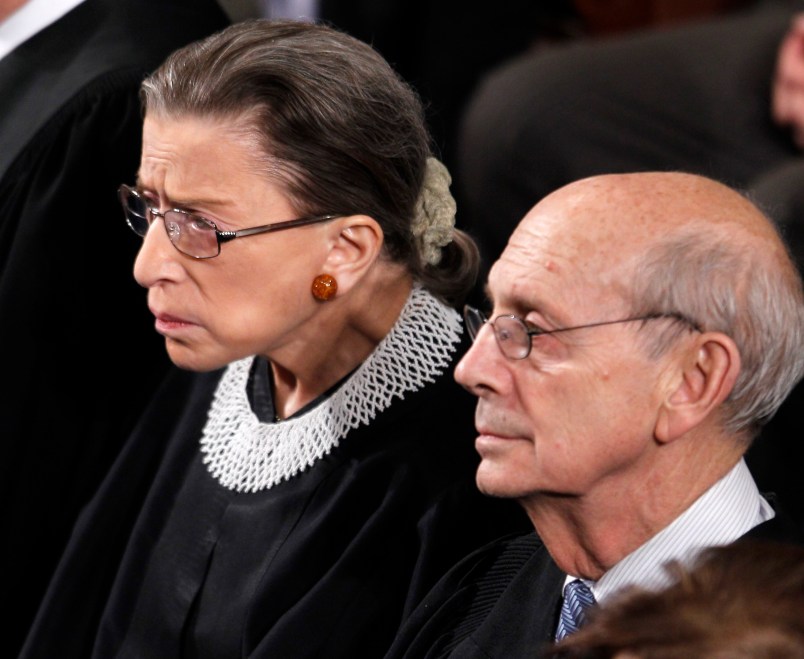As you can see, today we have not only another state gay marriage ban struck down by a federal judge. We have another struck down by a Bush appointee. Indeed, one endorsed by then-Senator Rick Santorum. I’d like to hear from lawyers and SCOTUS watchers but I’m straining to think of any analogue in recent history where you have an issue of great national import, SCOTUS makes an ambiguous but suggestive ruling and basically all the lower courts in rapid succession say, “SCOTUS folks, you meant this.” In this case, your ruling means that state bans on same sex marriages are unconstitutional.
I wrote late last year that I expected that same sex marriage would be the law of the land (by judicial fiat) by the end of President Obama’s term in office, perhaps well before that. So I have some interest in having that long shot prediction proven right.
But the question presents itself: how long does the Court let this play out? The conventional answer is maybe for quite a while. After all, the Court usually feels compelled to act precisely when there is disagreement on a matter of great national or jurisprudential import. But here that’s totally lacking. There’s no disagreement at all.
To the best of my knowledge, every judge who has had a bite at this apple has ruled that the Windsor decision means that same sex marriage bans violate the federal constitution. Not just Obama and Clinton appointees but Bush and Reagan appointees too.
So my question to the lawyers and SCOTUS watchers is this: True, there’s no disagreement between the circuits that needs to be resolved. Indeed, this has all happened so fast that no Appellate Court has even had a chance to issue a ruling. But going back to what at least seems to me like this unprecedented or extremely uncommon situation is the fact that you have something becoming de facto law very rapidly and bubbling up from the bottom. And yet there’s a question mark over it until the Supreme Court has not put a seal on it, as it were.
Clearly the Court isn’t going to act before some Circuit Courts speak. But that won’t take that long. I know that the Justices for a variety of reasons sometimes prefer to let things percolate. But if everyone is basically unanimous or perhaps even more if they’re not, what does the Court do? Must they not act?
My own personal, civic opinion is that the issue is of sufficient national importance that the Court shouldn’t remain silent while a seemingly undisputed interpretation of the constitution takes shape, especially this rapidly. But that’s just my opinion. I’m curious to hear from knowledgable readers how we should expect the Court to approach this or what they should do according to whatever relevant jurisprudential philosophy is relevant.






